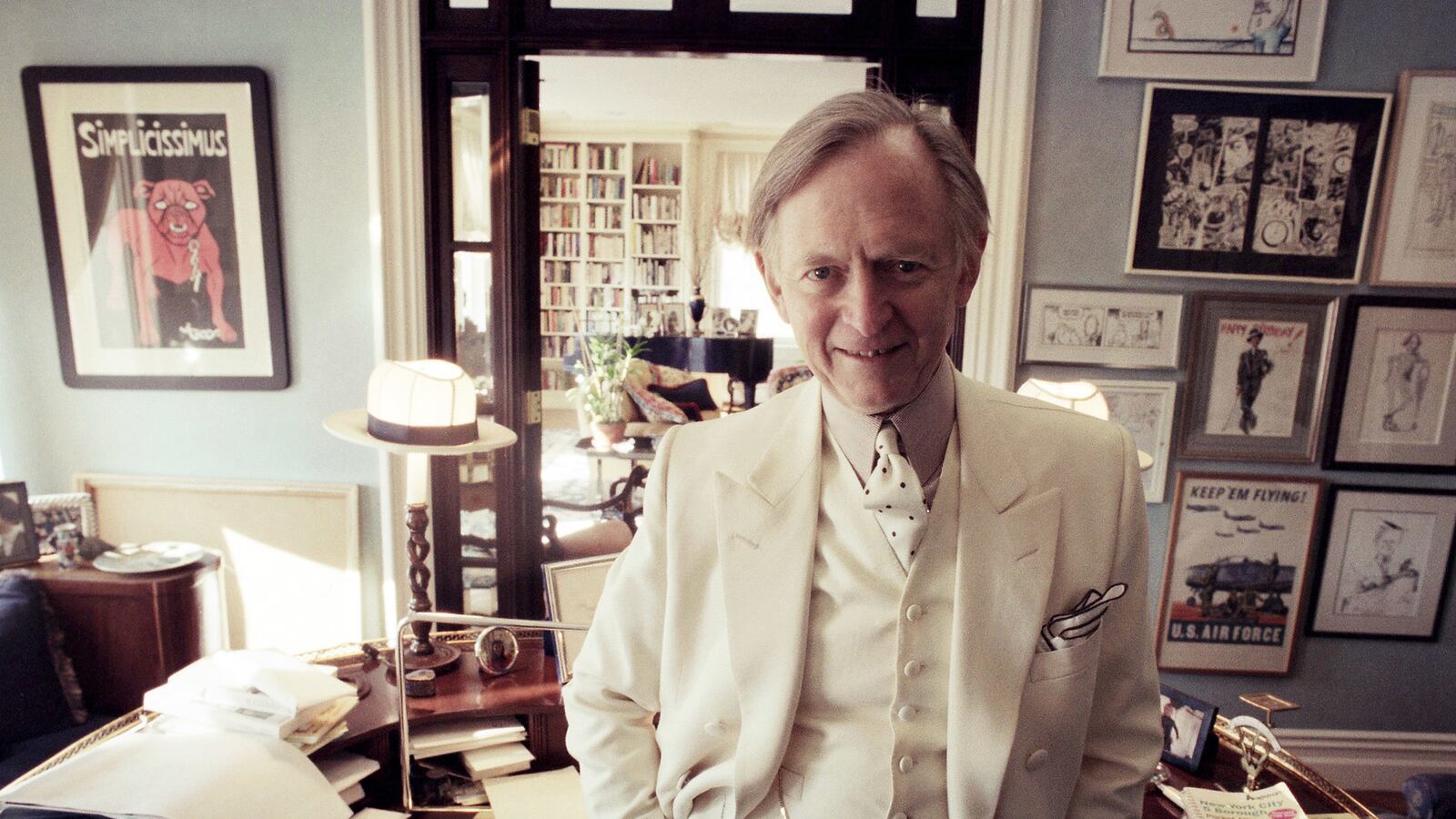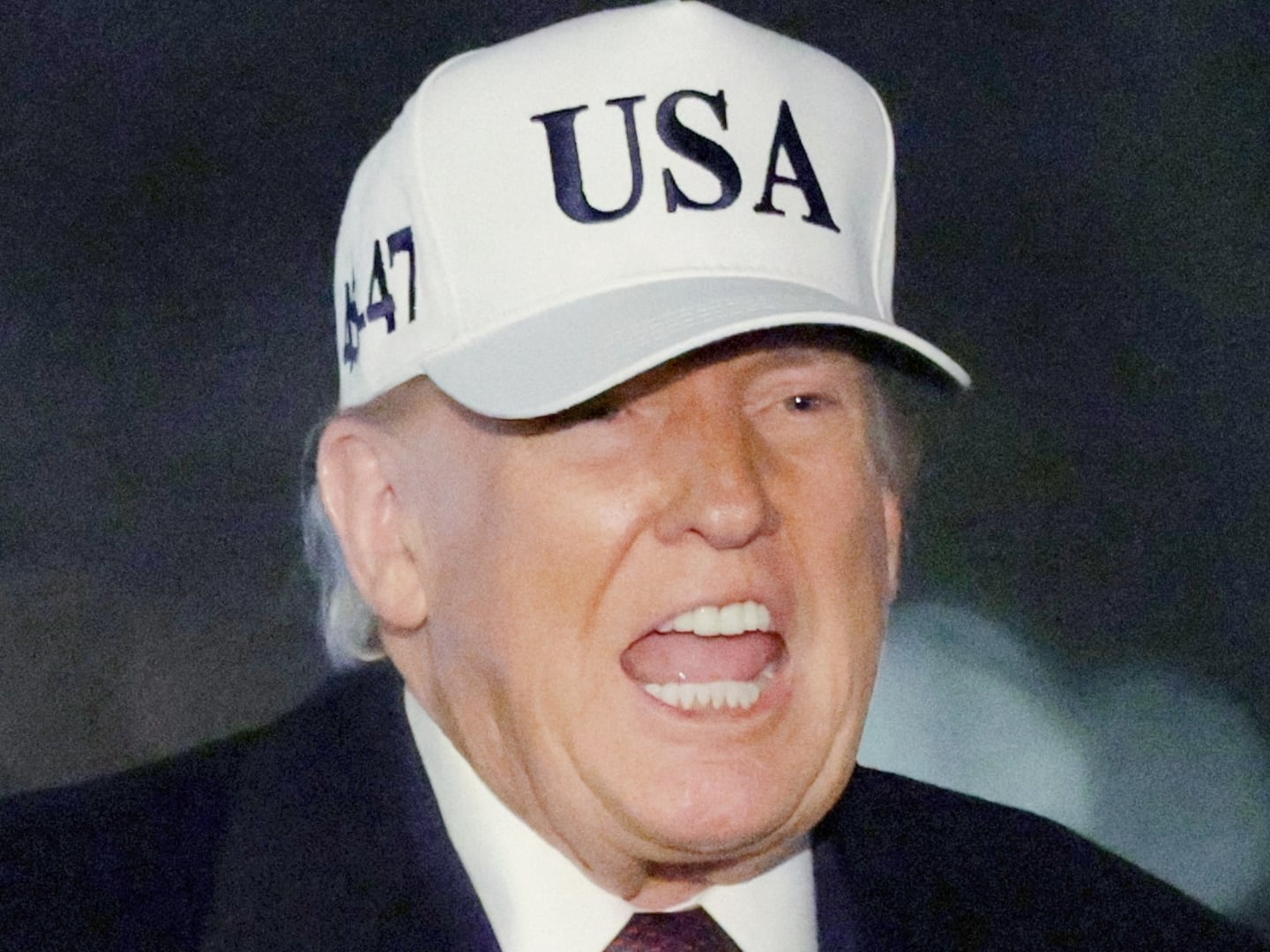In the spring of 1966, Tom Wolfe was working on a story for New York magazine about Ken Kesey, the novelist and counterculture icon who had faked his own suicide and fled to Mexico to avoid going to trial on marijuana charges. As would become a hallmark of his style of “new journalism,” Wolfe, resplendent in his tailored white suit and speaking with a subtle Virginian lilt, embedded with the Merry Pranksters and documented the emerging hippie movement.
Two years later, Wolfe published The Electric Kool-Aid Acid Test, his now-classic account of Kesey and company’s psychedelic, cross-country bus tour—and Kesey’s transformation from celebrated author to LSD evangelist and FBI fugitive.
Fifty years after Kesey’s first Acid Test parties, Taschen has reissued Wolfe’s book in a handsome, limited edition (1,968 signed copies) illustrated with sumptuous photographs from Life magazine’s Lawrence Schiller, the man who first introduced Wolfe to the LSD scene in 1966, and Ted Streshinsky, a photojournalist who documented the 1960s protest movement. (Schiller had never heard of Wolfe at the time, and wouldn’t hear of him again until he read The Electric Kool-Aid Acid Test in 1968.) It also includes the author’s hand-written notes, scribbled alongside his own psychedelic illustrations.
On Wednesday night, Wolfe and Schiller were reunited in the small gallery-like basement of the Taschen book store in Soho (Streshinsky died in 2003), where a small, packed crowd heard them tell stories about their journalistic past and muse about the future.
Resplendent as ever on Wednesday in his trademark white suit, robin’s egg-blue shirt, and grey socks with a skyscraper pattern on the sides, Wolfe discussed his writing and reporting style, rejecting the idea that he’s a particularly adept interviewer. When paid attention to, he argued, interview subjects will suffer from logorrhea.
“Everybody loves to tell people things that they don’t know. I’m the same way. If I’m walking down the street and someone asks me for directions—if I know, you can’t shut me up. By the time I finish they’re just out cold. They don’t want to go to Mason Street any longer. If I don’t know I’ll go away muttering, ‘Who the hell do they think I am, the town geographer?’”
Wolfe also rejected the idea, so commonly held by young readers of Electric Kool-Aid Acid Test, that psychedelic drugs expand the mind and improve creativity.
“Kesey once said he wrote on LSD but that, I’m sure, did not happen. No drug helps a writer write. Except maybe aspirin. No acid [when Kesey wrote] One Flew Over the Cuckoo’s Nest, I don’t think. And too beautifully structured,” he told the audience. (Unsurprisingly, the conservative southerner considered LSD too dangerous for casual consumption, he said, claiming that back in the 1960s, 1 in 6 people admitted to California psychiatric hospitals were there because of a bad LSD trip.)
But what of Wolfe’s heterodox political views, frequently out of step with the views of his fellow writers?
Even if he doesn’t exactly share his politics—and that’s unclear—Wolfe doubtless revels in the election of Donald Trump, whom he has called a “lovable megalomaniac,” just for his ability to annoy all of those who promised to flee the country if he was elected. In 2004, Wolfe told The Guardian that he “would vote for [George W.] Bush if for no other reason than to be at the airport waving off all the people who say they are going to London if he wins again. Someone has got to stay behind.”
And Trump could be easily confused with one of Wolfe’s fictional creations: garishly wealthy, a distinct creation of the New York City class system, and someone who loves power—and tweaking powerful liberals.
But above all else—novelist, political provocateur, observer of social mores—Wolfe is still a journalist. So what does he make of the Trump-era of journalism, with its penchant for fake news and Breitbart.com conspiracies?
“I’ve been reading about [fake news] and I do think it’s because there’s almost no fact-checking, whereas with newspapers, even if they’re lame, they’ll have someone on the court beat every single day, for example. I don’t know who’s covering beats these days,” he later told The Daily Beast.
Earlier, when an audience member quizzed Wolfe on the state of modern journalism, he lamented—and expressed amusement with—the lack of professionalism that has overwhelmed his former profession: “Marshall McLuhan made a prediction in 1968 and it was the wackiest thing I’d ever heard at the time, but it turned out to be true. He said that the new generation, people in their twenties, had been raised on television and it has changed the neural order of their perceptions. It’s turned them tribal… [and] it’s outstripping what journalism used to be. Nothing is checked anymore in those mediums. I’m not surprised that this great moment of fake news has arrived, which I think is a laugh and a half.”
Asked about so-called Pizzagate—the debunked conspiracy theory that prominent Democrats were involved in a satanic, pedophile ring—Wolfe was unfamiliar with the specifics of the story, but acknowledged the perniciousness of such conspiracies, telling The Daily Beast that he “never connected [fake news] with Trump. It may be… but I can’t make the link.”
There was a time when the novelistic journalism of The Electric Kool-Aid Acid Test was criticized by more traditional journalists, accused of substituting rigor with flash and relying too heavily on fictional elements to tell a “true story.”
In the 1960s, writer Dwight MacDonald excoriated Wolfe’s journalism, “their ideas bogus, their information largely misinformation, their facts often non-facts,” predicting that he “will not be read with pleasure, or at all, years from now, and perhaps not even next year.”
But of course now the genre Wolfe helped create is heralded, and his journalism is worthy of $350 illustrated editions to be purchased by the very upper-middle class he so skillfully mocked.
And now the journalist’s enemy isn’t the stylistic flourish of the novel disrupting non-fiction, but “non-fiction” devoid of both style and truth.
Marshall McLuhan might have predicted the tribalized media. But Dwight MacDonald could never have guessed the impact of actual “non-facts” on modern journalism.






